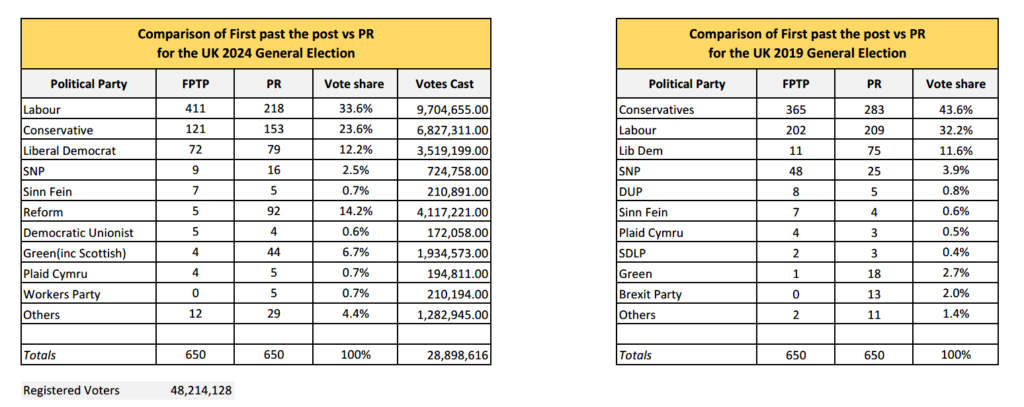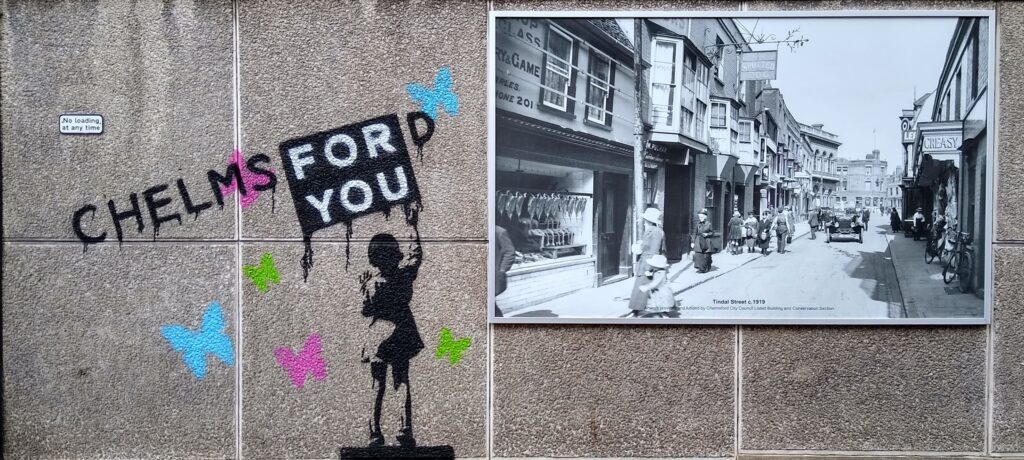-
Values
In Chelmsford, since 1950, only those people who have voted Conservative have had their wishes represented in Parliament. The losing votes predominantly being for the Labour or Liberal candidates, those votes are effectively thrown in the bin and carry no weight whatsoever in the final make up of Parliament. This situation is typically repeated throughout the UK, the result being that the majority of people in the UK are effectively disenfranchised as the winning party in Parliament rarely receives the majority of the votes which have been cast. Much of the debate in parliament is meaningless – parties do not negotiate or compromise with each other – being mostly focussed on winning points against other members or parties. What is preferable – Confrontation & Coercion or Co-operation & Consensus? There’s much to be said for a complete reform of our current democratic system because, as it stands, you might just as well vote for the Monster Raving Loony Party – crazy though it sounds!


A Statement of Principles
1.We want to live in a place guided by empathy, respect, justice, generosity, courage, fun and love.
2.We want to live in a place governed by judgements that are honestly made, supported by evidence, accountable and transparent.
3.We want to live in a place in which everyone’s needs are met, without harming the living world or the prosperity of future generations.
4.We want to live in a place in which the fruits of the work we do and the resources we use are fairly and widely distributed, in which shared prosperity is a general project, and the purpose of economic life is to enable universal well-being.
5.We want to live in a place in which all people have equal rights, in practice as well as in theory.
6.We want to live in a place in which all people can feel secure, confident, safe and cared for.
7.We want to live in a place in which, regardless of where they were born, everyone has a neighbourhood of which they feel proud, where they can freely participate in the life of the community.
8.We want to live in a place which, proudly and consistently, supports people in need of help, including those fleeing from danger and persecution abroad.
9.We want to live in a place in which a thriving natural world provides a refuge both for rich and abundant wildlife and for people seeking relief from the clamour of daily life.
10.We want to live in a place whose political system is fair and fully representative, in which everyone has a voice and every vote counts, and whose outcomes can neither be bought nor otherwise engineered.
11.We want to live in a place in which decisions are taken at the most appropriate level, to enhance democratic participation and connection.
12.We want to live in a place in which everyone has access to the information needed to make meaningful democratic choices, and in which political debate is honest, accessible and inclusive.
13.We want to live in a place in which education is a joyful process, encouraging children of all abilities to engage with enthusiasm, and adults to continue learning throughout their lives.
14.We want to live in a place in which good housing, fast and effective healthcare and a healthy, sufficient diet are available to everyone.
15.We want to live in a place that helps to build a safe, prosperous and resilient community of nations.
16.We want to live in a place that is open to new ideas and information, and that values creativity, research and discovery.#
Thanks to – George Monbiot “Out of the Wreckage” Published by Verso Books 2017
GDP versus GNH(Gross National Happiness
What is Gross National Happiness
- Gross national happiness (GNH) is a measure of economic and moral progress that the country of Bhutan introduced in the 1970s as an alternative to gross domestic product.
- The “four pillars” of GNH are good governance, sustainable development, preservation and promotion of culture, and environmental conservation.
- The Bhutanese government takes the four pillars of GNH into account when deciding to pass laws.
See links below for more detail: –
GDP vs GNH Rethinking what a healthy economy means
5 ways GDP gets it totally wrong as a measure of our success